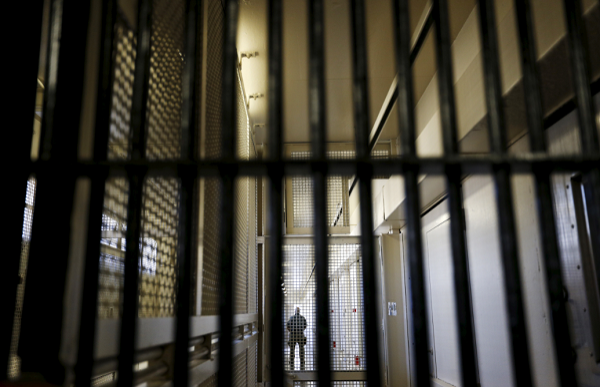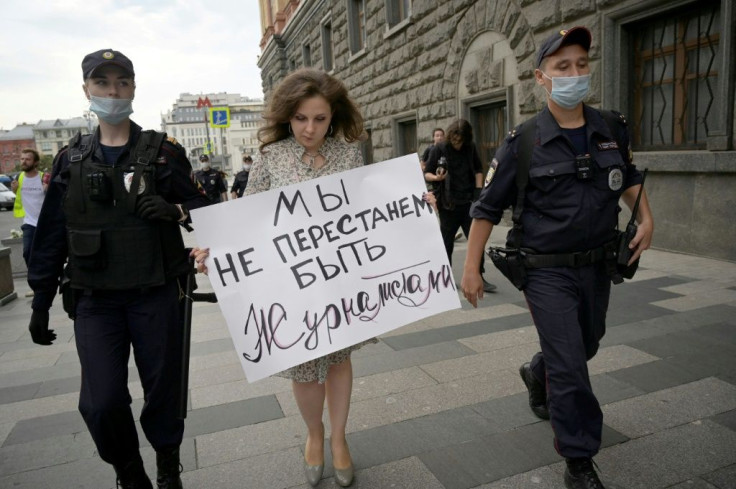Russian Journalist Arrested For Reporting On Kremlin Attacks Slashes Wrists In Jail

KEY POINTS
- RusNews journalist Maria Ponomarenko cut her wrists to protest her pre-trial detention
- She faces up to 10 years in prison for a Telegram post about a Russian airstrike on Ukraine that may have killed 600 civilians
- Ponomarenko requested to be transferred to house arrest as she suffers from depression but was denied
A Russian journalist accused of discrediting Russia's armed forces with alleged "fake" social media posts about the invasion of Ukraine attempted to kill herself while she was detained in a show of dissent.
RusNews journalist Maria Ponomarenko, who is currently being held in the Siberian city of Barnaul, cut her wrists to protest her pre-trial incarceration, U.S. government-funded outlet Radio Free Europe/Radio Liberty (RFE/RL) reported.
She survived the attempt, RusNews reported.
Ponomarenko was arrested in St. Petersburg on April 24 for allegedly spreading "fakes" about the Russian army, according to independent Russian online newspaper The Insider.
The charges stemmed from a Telegram post about a Russian air strike on a theater in the Ukrainian city of Mariupol on March 16, which an investigation conducted by the Associated Press concluded may have resulted in the deaths of up to 600 civilians.
Russian President Vladimir Putin had signed a law that criminalized the dissemination of knowingly false information about the actions of Russia's armed forces nearly two weeks before the arrest.
Ponomarenko, who was moved from St. Petersburg to her home city of Barnaul, now faces up to 10 years in prison for her charges.
She was placed in a punitive solitary cell for a week from Sept. 6 to 13 for breaking a window in her cell that was covered by paper, RusNews reported.
Ponomarenko said being held in the detention center affected her psyche, which is why she broke the window and slashed her wrists, according to the outlet.
"I consider the conditions of detention behind the taped-up windows to be torture," Ponomarenko told the Altai regional court Friday.
At the hearing, Ponomarenko requested to be transferred to house arrest with her two daughters due to her depression, claustrophobia and histrionic personality disorder.
"I do not pose any danger to society. The only person I can hurt in a state of hysteria and depression is myself," she said via a video call.
However, the court rejected the appeal, and Ponomarenko was remanded in custody until at least Sept. 29.
The Committee to Protect Journalists (CPJ) has called on Russian authorities to drop all charges against Ponomarenko.
The New York-based nonprofit also urged for Ponomarenko to be released.
"Russia's new laws criminalizing so-called 'fake' information about the war in Ukraine serve only one purpose: to censor and criminalize accurate coverage of the conflict," Gulnoza Said, CPJ's Europe and Central Asia program coordinator, was quoted as saying in a statement.
Prior to her suicide attempt, Ponomarenko said in an open letter published in July that she was ordered to undergo a psychiatric evaluation and forcibly injected with unknown substances.
Injections are not included in the psychiatric evaluation of criminal suspects, according to RFE/RL.
If you have thoughts of suicide, confidential help is available for free at the National Suicide Prevention Lifeline. Call 1-800-273-8255. The line is available 24 hours, every day.

© Copyright IBTimes 2025. All rights reserved.





















